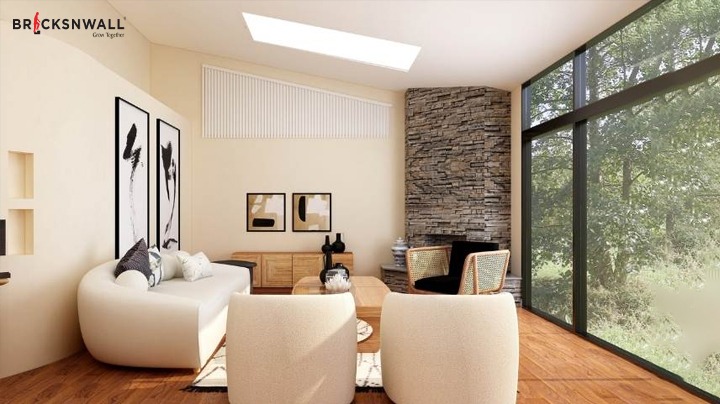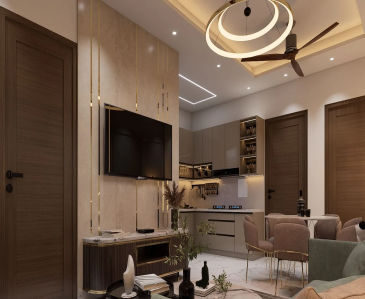Astonishing Methods to Let in More Natural Light in Your House
Bricksnwall Trusted Experts

Did you realize that depression can really be
caused by a lack of natural light? It is real! Natural light is not only
essential for maintaining our physical health but also for maintaining our
mental wellness. Furthermore, it's critical now more than ever to find ways to
let as much natural light as possible into our homes during these long, gloomy
winters. What are some unusual strategies for bringing more natural light into
your house?
Apply white paint to the ceiling and walls.
Although dark hues can create a warm, inviting
atmosphere, they can also give off a narrow, claustrophobic vibe. However,
white paint on the walls and ceiling will help reflect light, giving the room a
lighter, airier impression.
Make use of mirror surfaces
Reflective surfaces can be used in other ways
besides mirrors to boost natural light in your house. To reflect light around
the space, you may, for example, utilize metal accents or hang a glossy piece
of art.
Arrange your furnishings in a smart way.
Make sure there is adequate room for light to flow
through your furniture arrangement. Don't put your sofa just in front of a
window, for instance, if one is behind it. To assist in bringing in more light,
try positioning a chair or table in front of the window.
Keep the windows open.
Even if it seems obvious, this one is nonetheless
important to note! Verify that nothing, including curtains or furniture, is
obstructing your windows. Your room cannot be made brighter if light cannot
enter it.
Open up to the sun!
Even though it might seem obvious, this one is
nonetheless important to mention. During the day, open your drapes or blinds to
let in some natural light.
It will assist you in getting your recommended
daily intake of vitamin D, in addition to adding brightness to your area.
Make good use of artificial illumination.
Artificial lighting can serve to supplement natural light, but it cannot completely replace it. Make sure you choose light bulbs that are bright enough to light the entire room while utilizing artificial lighting. Additionally, make an effort to utilize LED lamps that consume less energy.
Advantages of Introducing Natural Light
The advantages of allowing natural light into their
homes are often overlooked. Natural light can do the following things in
addition to making your environment feel lighter and airier:
• Assist you in getting the recommended daily
intake of vitamin D, which is particularly crucial in the winter when there is
less sun exposure.
• Elevate your mood: research has indicated that
exposure to natural light can mitigate depression and enhance mood.
• Boost productivity: Studies have shown that
employees with access to natural light are more productive than those without.
• Promote better sleep: During the day, exposure to
natural light can aid in regulating your body's circadian rhythm.
• Reduce your energy costs: because natural
light doesn't need electricity to run, so you can reduce the amount you
pay for energy.
• Cleanse the air: Plants help filter the air in
your home by releasing oxygen and absorbing carbon dioxide.
• Assist with focus: studies have indicated that
exposure to natural light enhances concentration and focus.
• Lessen eye strain: Natural light can aid in lessening eye strain because it is gentler on the eyes than artificial light.




